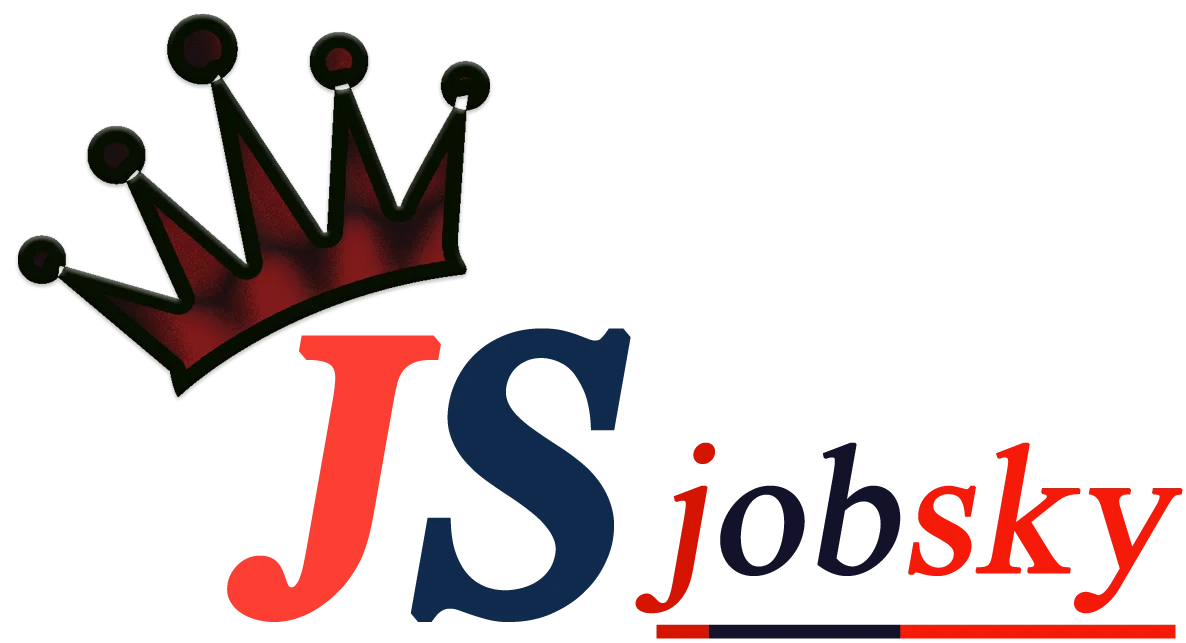
Exploring Job Opportunities in Switzerland: A Comprehensive Guide
Introduction to the Swiss Job Market
Switzerland’s employment landscape stands out for its stability and long-term resilience, making it one of the most appealing destinations for professionals worldwide. The country benefits from a high-performing economy, driven by innovation, productivity, and a strong infrastructure. With an unemployment rate consistently near 3% as of late 2023, Switzerland demonstrates an efficient and well-managed labor system.
A number of key sectors drive employment and economic progress. The financial services industry remains a pillar of Switzerland’s economy, especially in cities like Zurich and Geneva. These financial hubs offer roles across banking, insurance, and asset management, often within global corporations with extensive international operations.
The pharmaceutical and biotech sectors also contribute significantly to employment, with major players like Roche and Novartis spearheading advancements in medicine and innovation. Their continued investment in research and development creates a steady demand for qualified professionals.
Technology and engineering continue to expand, with Switzerland making significant strides in digital innovation. These industries benefit from national support for R&D, creating an ecosystem that attracts skilled professionals globally. Tourism and hospitality, especially in scenic destinations, also provide numerous jobs, particularly for those skilled in customer service and international guest relations.
Thanks to a combination of a skilled workforce, forward-thinking policies, and a commitment to innovation, job opportunities in Switzerland remain both diverse and promising. Professionals from various backgrounds can expect strong career growth and a stable professional future.
Key Industries and Sectors for Employment

Switzerland’s economy thrives on a diverse range of industries that contribute significantly to job creation. These include finance, pharmaceuticals, technology, engineering, and tourism—each offering substantial employment prospects for domestic and international candidates.
The finance industry is a core component of the Swiss economy. Cities like Zurich and Geneva are recognized as global finance centers. Opportunities range from private banking and investment management to risk and compliance. Employers often seek individuals who are fluent in English, German, or French and possess strong analytical and regulatory knowledge. With the rise of fintech, candidates with experience in digital finance are increasingly in demand.
Pharmaceuticals represent another leading sector. Renowned companies such as Novartis and Roche continue to lead global efforts in drug development, clinical trials, and biotech innovation. Positions in this sector often require life sciences degrees, research expertise, and familiarity with international regulatory practices.
Switzerland’s growing tech industry is backed by its investments in education and innovation. Software development, cybersecurity, and data science are rapidly growing fields, with businesses looking for professionals skilled in advanced digital technologies. Similarly, engineering remains a vital sector, offering jobs in areas such as civil, mechanical, and electrical disciplines. These roles often emphasize technical knowledge, design skills, and engineering project experience.
Tourism and hospitality also provide significant job opportunities in Switzerland’s alpine regions. From hotel management to travel services, the sector looks for individuals with strong communication skills and multilingual ability. Each of these industries contributes to a well-rounded and dynamic labor market, reinforcing Switzerland’s position as a hub for diverse employment opportunities.
Navigating the Job Search Process in Switzerland
A well-planned approach is essential for anyone seeking job opportunities in Switzerland. The process begins with detailed research into available positions, using job portals such as jobs.ch and jobscout24.ch. These platforms offer extensive listings across industries and regions. Reviewing company profiles and tailoring your application accordingly improves your chances of success.
Networking is an important part of the Swiss job search culture. Establishing professional connections through LinkedIn, career events, or industry meetups can open doors to unadvertised roles. In Switzerland, referrals and word-of-mouth introductions often play a significant role in hiring, especially in specialized sectors.
Using digital job boards effectively helps in tracking suitable positions. Specialized platforms that cater to specific industries—such as finance or pharmaceuticals—can provide more targeted results. Setting job alerts ensures that applicants remain informed about new postings and trends.
Cultural understanding also plays a critical role. Swiss employers prefer structured and detailed applications, often following a local-style CV and cover letter format. Highlighting qualifications relevant to the role and using clear, concise language is highly recommended. Additionally, understanding language preferences and adjusting applications based on regional norms—such as French in Geneva or German in Zurich—can further improve one’s chances.
With diligent research, networking efforts, and cultural sensitivity, international job seekers can successfully navigate the Swiss job market and increase their chances of securing meaningful employment.
Work Permits and Visa Requirements
Switzerland’s strong job market attracts global talent, but securing the right to work requires understanding the country’s immigration system. Requirements vary based on whether applicants are EU or non-EU citizens, and knowing the relevant permit process is essential to securing employment legally.
For EU nationals, the process is relatively simple due to Switzerland’s agreement with the European Union. Most EU citizens need only a residence permit to work in the country. Depending on the length of employment, they may apply for a short-term (L permit) or long-term (B permit). These applications generally require an employment contract, valid identification, and proof of health insurance.
Non-EU nationals face stricter requirements. Swiss employers must demonstrate that no qualified Swiss or EU candidate is available before offering a job to a non-EU applicant. Work permits—either L or B—can be issued for non-EU citizens, usually if they possess in-demand skills, professional experience, or specialized qualifications. The application typically includes a CV, education documents, a job offer letter, and sometimes language test results.
While Swiss authorities are gradually opening to more skilled non-EU professionals, the process remains competitive and documentation-heavy. Applicants should be aware of possible delays and should apply early, especially if planning a move across borders. Understanding legal requirements early on helps ensure a smoother transition into the Swiss workforce.
Salary Expectations and Cost of Living

One of the main attractions of pursuing job opportunities in Switzerland is the high earning potential. Average salaries in Switzerland are among the highest in Europe. For instance, financial professionals often earn over CHF 100,000 annually, while IT and engineering roles typically offer between CHF 80,000 and CHF 90,000, depending on experience.
However, salary must be considered alongside Switzerland’s cost of living, which is also among the highest in the world. Federal, cantonal, and local tax structures can affect take-home income, with taxes usually ranging between 20% to 30%. Benefits such as health insurance, pension plans, and travel allowances are often part of employment packages, providing some balance to the overall expense burden.
Housing represents a significant expense, especially in urban centers like Zurich, Basel, and Geneva. Rent for a one-bedroom apartment can range from CHF 2,000 to CHF 3,500 monthly. Utilities, groceries, and transport further contribute to living costs. For this reason, job seekers must evaluate their salary offers in the context of daily expenses and long-term financial sustainability.
Being informed about the cost-to-income ratio helps job seekers make wise decisions when considering offers in different Swiss regions. Understanding both compensation and living costs ensures realistic expectations and better financial planning.
Cultural Considerations in the Workplace
Working in Switzerland involves adapting to a unique professional culture that values punctuality, precision, and respectful communication. Understanding and respecting these norms helps international employees integrate more effectively into their workplace.
Timeliness is taken seriously in Swiss business culture. Arriving late for meetings can be viewed as unprofessional and disrespectful. Punctuality reflects your commitment and reliability, making it an essential part of workplace etiquette.
Communication is generally direct and efficient. While conversations remain polite and respectful, Swiss professionals prefer clear, goal-oriented exchanges rather than excessive small talk. Maintaining this tone helps establish credibility and builds positive working relationships.
There is often a noticeable respect for hierarchy in the Swiss workplace. While collaboration is valued, decisions typically follow a chain of command, and it’s important to recognize formal roles. Language also plays a cultural role; using the formal “Sie” in German or “vous” in French when addressing colleagues or superiors is standard until invited to use informal terms.
Adjusting to these cultural nuances can lead to better integration and greater professional success. Flexibility and openness to learning local customs allow expatriates to thrive in the structured yet welcoming Swiss work environment.
Networking Opportunities in Switzerland
In Switzerland, building a strong professional network can greatly influence career growth. Many job opportunities are never publicly posted but instead shared through personal referrals and professional relationships. For this reason, networking is an essential strategy.
LinkedIn is a vital platform for connecting with industry peers, joining local professional groups, and attracting recruiters. A complete and regularly updated profile, active participation in discussions, and reaching out to people with shared interests can significantly boost visibility.
Job fairs are also valuable opportunities to meet employers in person. These events allow candidates to ask questions directly, present their experience, and gain insight into hiring trends. It’s important to come prepared with printed CVs and a clear elevator pitch that summarizes your qualifications and goals.
Joining professional organizations and attending local meetups offer ongoing opportunities for building relationships. Whether through technical workshops or industry-specific forums, these interactions often lead to mentorship, referrals, and even job offers.
With strategic networking efforts, job seekers can gain access to the hidden job market and build lasting connections that support long-term career development in Switzerland.
Expanding Your Skills and Education
In Switzerland’s competitive job market, continuous skill development is a key asset. The country supports lifelong learning through vocational programs, professional certifications, and academic courses designed to meet modern workplace demands.
Vocational training plays a crucial role in the Swiss system. These programs, often based on a dual model of classroom instruction and practical experience, prepare students for real-world roles in sectors like healthcare, engineering, and logistics. They are ideal for individuals seeking to switch careers or deepen expertise in a specific field.
Certifications in areas such as project management, finance, and information technology can make candidates more competitive. Institutions across Switzerland offer courses tailored to current industry needs, many of which are recognized by employers nationally and internationally.
Language learning is another important area. With four national languages, proficiency in German, French, or Italian can significantly enhance employability. Numerous language schools and online platforms make it convenient to improve language skills alongside job preparation.
By continuously upgrading their skills and adapting to industry demands, professionals can boost their job prospects and create more opportunities for advancement in Switzerland.
Key Job Sectors and Average Salaries in Switzerland (2025)
| Sector | Key Roles | Average Salary (CHF/year) | Job Prospects |
|---|---|---|---|
| Finance | Investment Banking, Asset Management, Risk Analysis | 100,000 – 150,000 | High demand, especially in Zurich and Geneva |
| Pharmaceuticals | Research & Development, Regulatory Affairs, Sales | 90,000 – 130,000 | Growing, with major companies like Novartis and Roche |
| Technology | Software Engineering, Data Analytics, Cybersecurity | 80,000 – 120,000 | Rapid growth, high demand in Zurich, Basel, and Lausanne |
| Engineering | Mechanical, Civil, Electrical Engineering | 80,000 – 110,000 | Strong job market for skilled engineers |
| Tourism & Hospitality | Hotel Management, Tour Operations, Customer Service | 60,000 – 90,000 | Stable, especially in popular tourist regions like the Alps |
Success Stories: Expat Professionals in Switzerland

Switzerland’s appeal as a work destination is reflected in the many success stories of expats who have built meaningful careers in the country. Their experiences highlight the importance of adaptability, perseverance, and strategic networking.
One example is Julia, a marketing expert from Germany who moved to Zurich. Despite facing initial challenges with local languages, she used her strong English communication and digital marketing skills to secure a role in a tech firm. Through expat networking events and online communities, she built a professional circle that supported her journey.
Another story is of Ahmed, an engineer from Tunisia. After relocating to Geneva, he struggled to find work that matched his qualifications. Recognizing the language barrier, he enrolled in French classes and became active in professional forums. These efforts helped him land a job at a major multinational corporation.
These examples show that success in the Swiss job market is possible with dedication, upskilling, and the right support systems. Expat communities often play a crucial role in helping newcomers settle in and find opportunities, making Switzerland a welcoming place for professionals worldwide.







